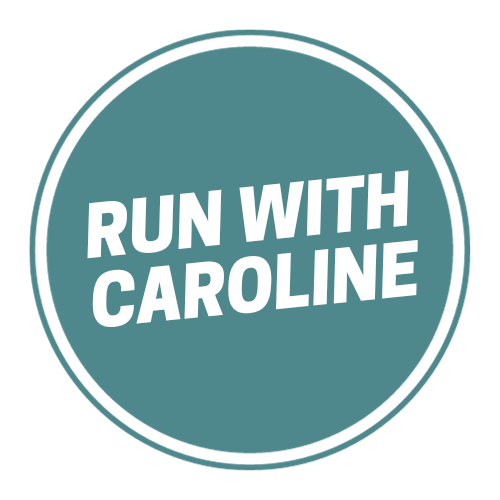Feeling a bit itchy down there? Don’t worry, you’re not alone.
Itchy pubic hair is a common issue that affects many men and women alike.
This sensation of itchiness and irritation in the pubic area can be frustrating, but what causes it?
Knowing what causes it will help you manage and prevent it from happening for good.
So keep reading to learn more about itchy pubic hair and how to get relief from this common skin condition.
In this guide we’ll look at:
- What are the common causes of itchy pubic hair?
- How to prevent itchy pubic hair for good
- 5 home remedies for itchy pubic hair
- When to see a doctor
Ready?
Let’s get started!
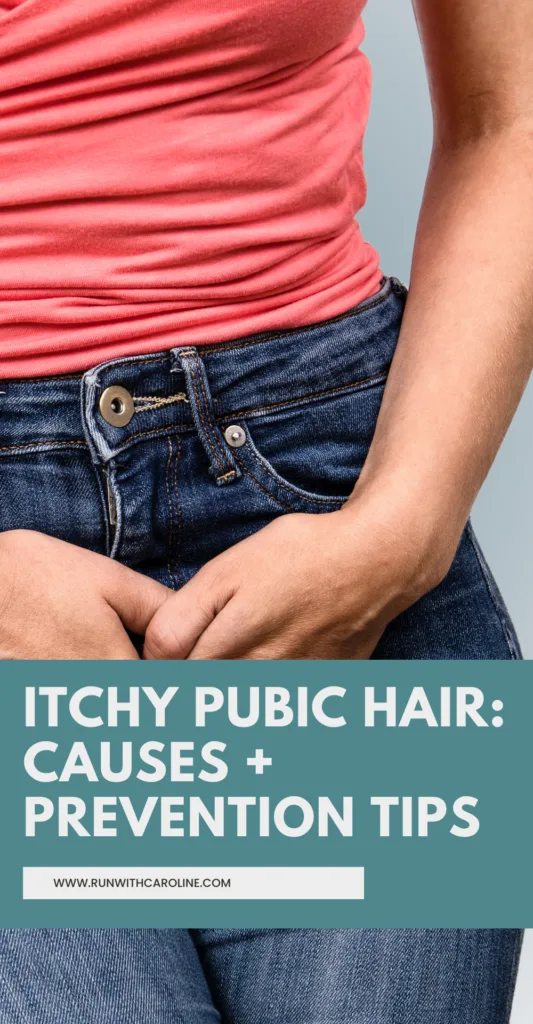
What are the common causes of itchy pubic hair?
Itchy pubic hair is not a pleasant feeling, so what would be causing it?
Here are 11 common causes of itchy pubic hair:
- Pubic lice
- Contact dermatitis
- Eczema
- Psoriasis
- Genital herpes
- Bacterial vaginosis
- Razor burn
- Yeast infection
- Allergic reaction
- Excessive dryness
- Sweating
#1 Pubic lice
Pubic lice, also known as crabs, are tiny insects that feed off human blood, holding onto pubic hair for support.
Anyone can get pubic lice, but they are more commonly spread via sex.
When the lice bite the skin, this causes a reaction that causes itchiness.
Pubic lice can be hard to pinpoint using the naked eye, but typically they present as very small insects at the root of the hairs.
#2 Contact dermatitis
Inflammation of the skin is called contact dermatitis and is caused by something touching the skin that causes irritation or an allergic reaction.
Products like detergents, fabric softeners, perfumes, latex and certain skin care products can cause contact dermatitis.
Symptoms of contact dermatitis are red, inflamed skin, flaky skin and in some cases hives.
#3 Eczema
Eczema is another form of dermatitis and causes dryness, itching and sensitive skin.
It often appears in patches on the skin, particularly in areas like the groin, knees, elbows and hands.
Common triggers of eczema include perfumed soap, detergents, synthetic fabrics and food allergies.
Hormonal changes in women can also trigger eczema. Some women find their symptoms worsen in the run up to their period or during pregnancy.
#4 Psoriasis
Psoriasis is a skin condition that causes flaky patches of skin.
These patches of skin form scales which can appear on any area of the body, including the groin, vulva and upper thighs.
People with psoriasis produce skin cells every 3 to 7 days due to problems with their immune system.
This is an increase from every 3 to 4 weeks which is when skin cells are normally made.
The resulting build up of cells is what creates the patches of skin.
#5 Genital herpes
Genital herpes is a sexually transmitted infection (STI) that causes itchiness and a burning sensation in the genital area.
You may also experience pain when peeing and vaginal discharge.
Itching typically begins before an outbreak of blisters and then sores.
There’s no cure for genital herpes but symptoms usually clear up by themselves.
A sexual health clinic will be able to advise on the best treatment options.
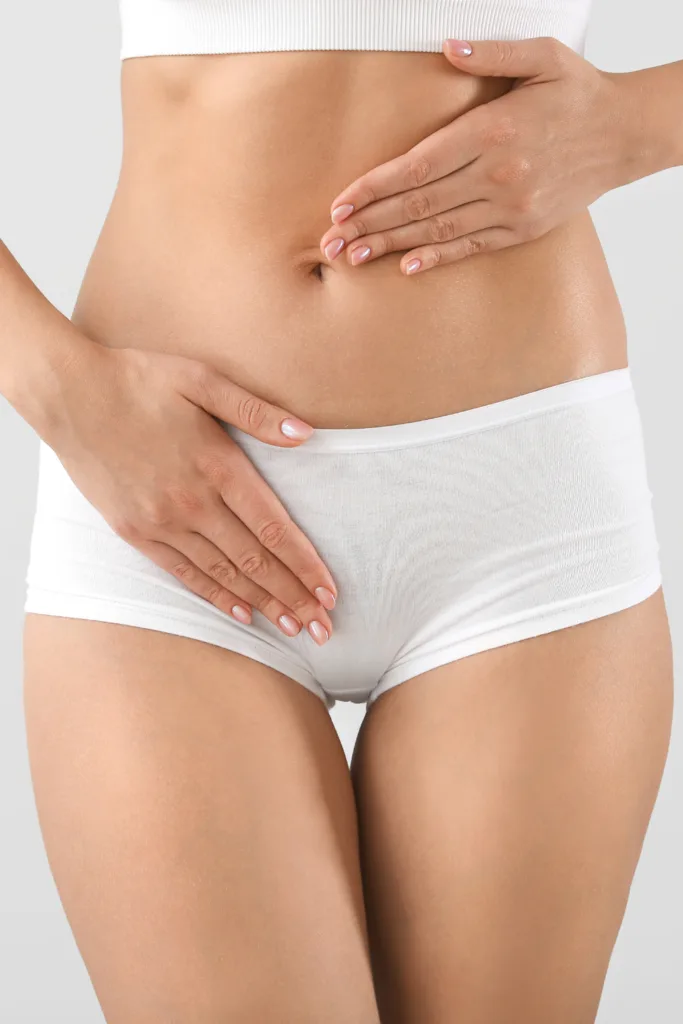
#6 Bacterial vaginosis
Bacterial vaginosis (BV) is a common cause of unusual vaginal discharge.
Symptoms include vaginal discharge that has a strong fishy smell and a change in colour and consistency of your discharge, such as becoming greyish-white.
BV doesn’t usually cause itching or soreness, so if you experience these symptoms, check for other causes of unusual vaginal discharge.
#7 Razor burn
Razor burn develops temporarily after you shave due to irritation.
The skin may feel tender, burning, itchy or small red bumps may appear.
The face, legs, underarms and bikini area are susceptible to razor burn.
#8 Yeast infection
Yeast can be found in your digestive system and in your vagina (if you’re a woman).
When too much yeast grows on your skin or other areas, it can cause a yeast infection (also known as candidiasis).
Symptoms of a yeast infection in the vaginal area include white or yellow discharge from the vagina, itching, redness and burning.
#9 Allergic reaction
Allergic reaction and irritation from products like soap and shower gel may be why you have itchy pubic hair.
Women are prone to allergic reaction and irritation because products like feminine hygiene sprays, perfumed soaps, wet wipes and scented panty liners may cause a reaction.
It’s recommended you use products with simple, natural ingredients to reduce the risk of irritation.
#10 Excessive dryness
Frequent showering and bathing may cause excessive dryness which can lead to increased itchiness in the pubic area.
The menopause can also cause dryness due to the thinning and drying of the lining of the vagina due to decreased estrogen levels.
#11 Sweating
A condition called ‘jock itch’ can develop due to moisture or sweating building up in the groin area.
It can also be spread if there is contact with unwashed clothing or direct skin to skin contact.
Related: How to stop vaginal chafing when running
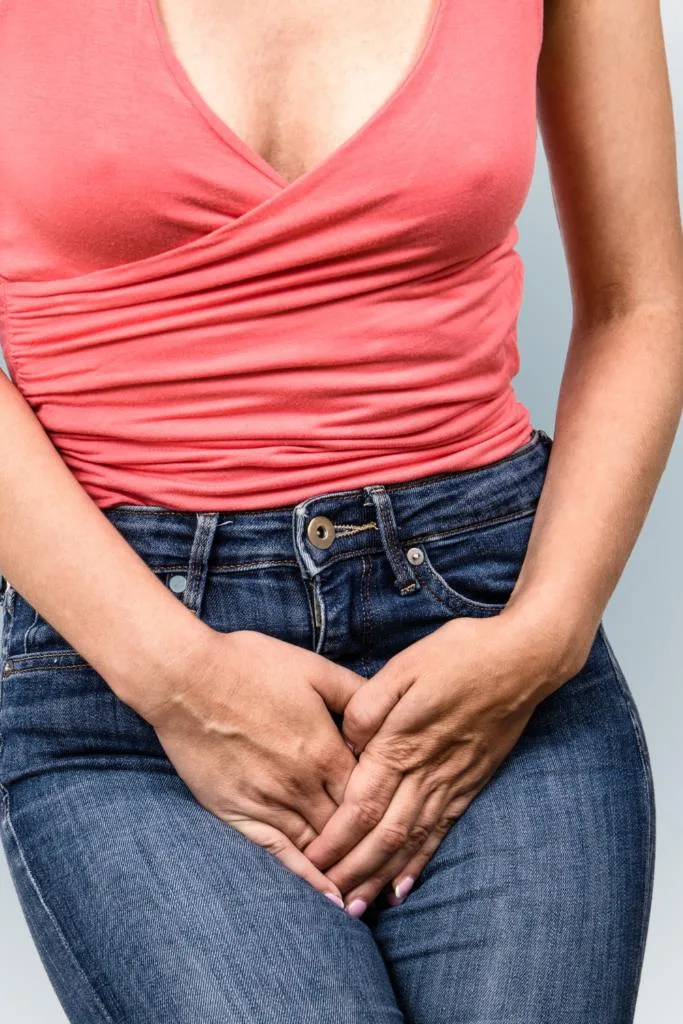
How to prevent itchy pubic hair
Itchy pubic hair can be uncomfortable and downright annoying.
Here’s how to prevent itchy pubic hair.
#1 Avoid scratching
It’s important you avoid scratching the affected area as scratching increases the risk of bleeding and infection.
If you have a fungal infection, for example, you risk spreading the infection to other parts of the body by touching it.
#2 Keep your genital area clean and dry
It’s important to keep your genital area clean and dry to avoid a buildup of sweat and bacteria which can exacerbate the problem.
When washing and showering, make sure you use mild soap and water and pat dry with a clean towel.
Opt for gentle products that are designed for sensitive skin.
Products with natural oils and fragrance-free ingredients will help prevent any further irritation.
#3 Wear breathable clothing
Breathable clothing is another key factor to prevent itchiness.
Tight clothing can trap moisture and heat, causing irritation and inflammation.
Opt for loose-fitting clothing with natural fibres like bamboo and cotton as these allow air to flow more effectively and prevent sweat buildup.
#4 Avoid sharing personal items
Avoid sharing personal items like towels, underwear and razors as these can spread germs, leading to infections and itchiness.
#5 Practice proper shaving
When shaving your pubic hair, follow these tips to ensure a smooth shave and reduce the risk of itchiness:
- Use a new razor and rinse it often to prevent clogging
- Soak the skin in warm water to soften the hair before shaving
- Apply shaving cream
- Shave in the direction of hair growth
- Avoid tight fitting underwear and clothing after shaving
#6 Practice safe sex
It goes without saying that using protection is vital in preventing sexually transmitted infections that can cause itchy pubic hair.
Related: Should you work out on your period? 6 best exercises
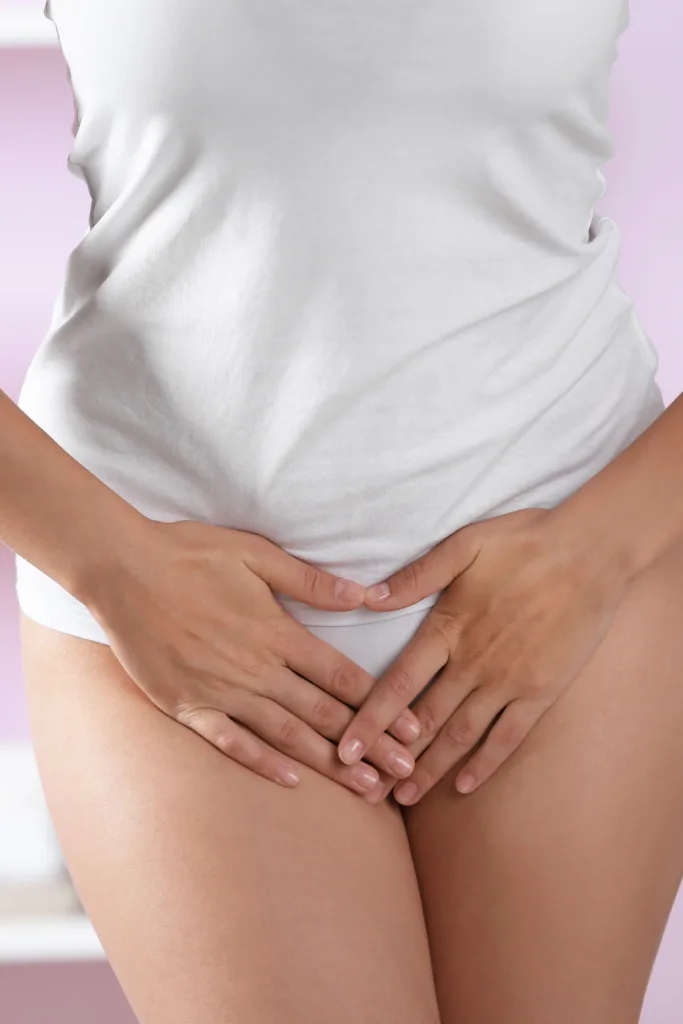
How to relieve itchy pubic hair: 5 home remedies
These home remedies for itchy pubic hair are safe, affordable and easy to use.
With home remedies it’s important to remember that everyone’s skin reacts differently, so if your symptoms worsen, it may be time to seek medical advice.
#1 Take an oatmeal bath
An oatmeal bath is a great option to soothe itchy skin.
Oatmeal contains anti-inflammatory properties that help to calm irritated skin and reduce itching.
Add one cup of uncooked oatmeal to bathwater and soak for 15 to 20 minutes.
#2 Use coconut oil
Coconut oil has antibacterial and anti-inflammatory properties and is great for soothing itchy skin in the pubic area.
Plenty of studies have shown that virgin coconut oil improves the symptoms of skin disorders by moisturising and soothing the skin.
#3 Use aloe vera
Aloe vera has anti-inflammatory properties and is a popular choice for soothing skin.
According to a 2019 study, aloe vera has been used for centuries for medicinal purposes and it can be used as a complementary treatment to retain skin moisture and improve wound healing.
#4 Use over the counter topical creams
If you suffer conditions like eczema or psoriasis, then your doctor may prescribe emollients or topical corticosteroids like hydrocortisone.
These help to stop the skin becoming dry and reduce swelling and redness during flare-ups.
Related: Why do my legs itch when I run? How to prevent runner’s itch
When to see a doctor
If home remedies don’t cut it, or your symptoms continue to worsen, then you may want to seek medical advice.
Symptoms to watch out for include:
- Redness and swelling
- Foul-smelling vaginal discharge
- Painful urination
- Painful bowel movements
- Blisters or sores
- Fever or chills
When you see a doctor they will examine the affected area and will ask you about your symptoms and medical history.
They may take a swab of the affected area if they suspect a more serious condition.
Related: Does chocolate help with period cramps? Everything you need to know
- 5 things I wish I’d known before returning to running - March 3, 2024
- Running 20 minutes a day: Benefits + how to start - January 27, 2024
- How to run your first 2 hour half marathon - January 16, 2024
